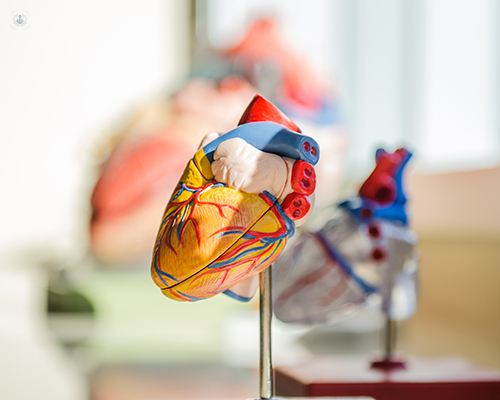What could be causing my heart palpitations?
Written in association with:Heart palpitations are a very common phenomenon, but can be quite frightening if you don’t know why you’re experiencing them. In his latest article, renowned cardiologist Dr Navin Chandra explains what your palpitations could indicate, and how to treat them.

What are heart palpitations? What are the symptoms?
Palpitations are an awareness of your heart beating. They are common and can be normal in certain circumstances (e.g., after exercise or under stressful situations). Palpitations may be of concern if they are sudden, prolonged or associated with other symptoms such as sweating, dizziness, chest pain or breathlessness.
What can heart palpitations indicate?
Palpitations can be a sign of a heart rhythm abnormality called ‘arrhythmia’ and examples include; atrial fibrillation, atrial flutter, supraventricular tachycardia (SVT), or ventricular tachycardia (VT).
Palpitations are investigated initially with a 12-lead ECG and heart rhythm monitoring if needed (24-hour Holter monitoring, 7-day event recording, REVEAL device implantation). Evaluation of the heart from a structural and functional perspective is important to understand why an arrhythmia is present and this may involve echocardiography, cardiac MRI or CT coronary angiography.

What can people do to manage heart palpitations?
Treatment options vary depending on the precise nature of the arrhythmia. For some, simple measures and reassurance can be all that is required. In other cases, medications and tablets are sufficient. In a few cases, invasive treatment is preferable and this can include electrophysiological studies and ablation or cardiac device therapy (e.g. permanent pacemaker, implantable cardioverter defibrillator or cardiac resynchronization therapy).
Dr Navin Chandra is a leading cardiologist based in Slough, London and Windsor with over 15 years of experience. If you would like to book a consultation with Dr Chandra, you can do so today via his Top Doctors profile.


